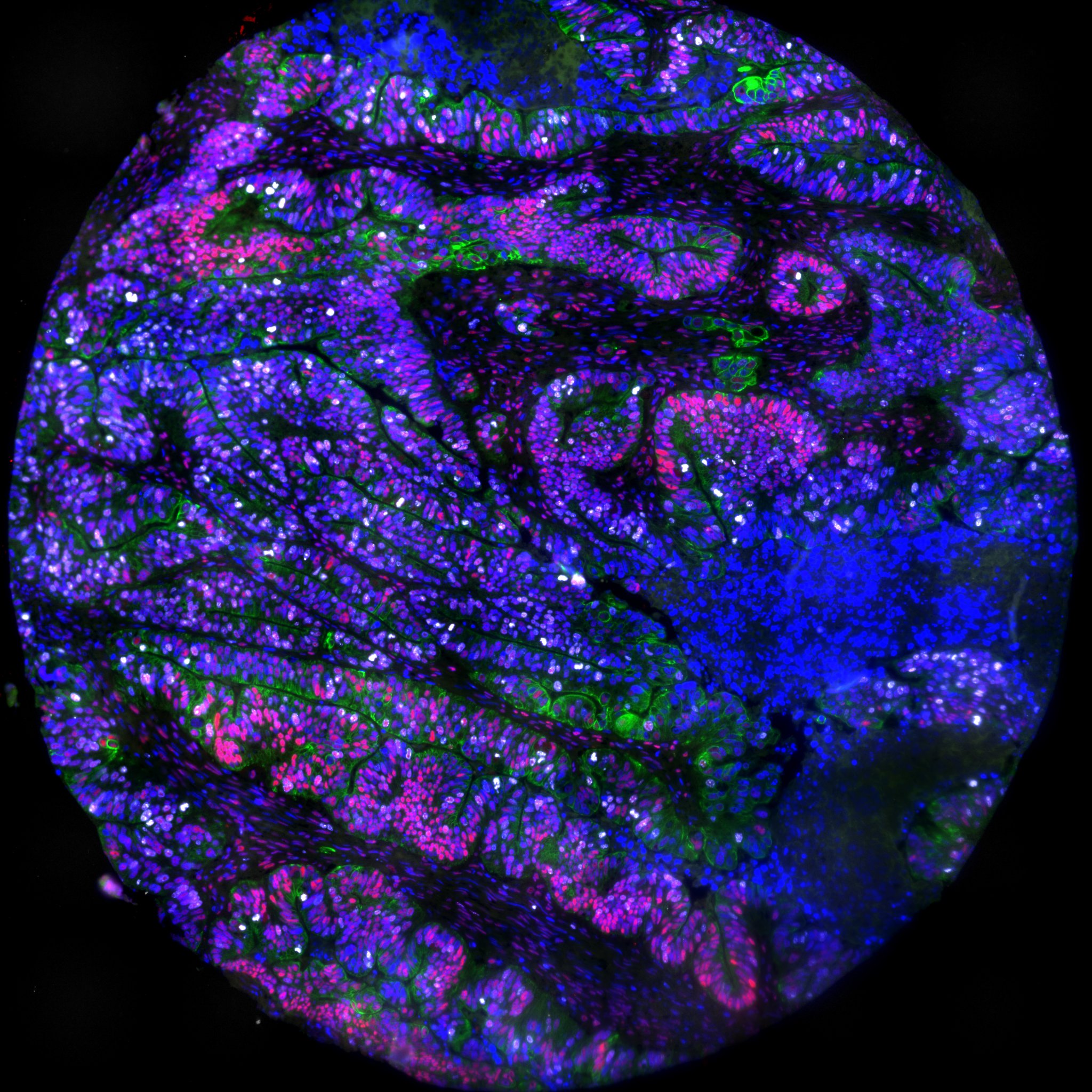From the understanding of disease mechanisms to therapy: Research at the dept of experimental oncology.
In IEO there is a total integration between research and clinical activity, aimed at the most rapid translation of research results into therapy. Basic and translational research activities are carried on at the dept of experimental oncology (DEO) located at the Campus in Milan which also hosts the European school of molecular medicine (SEMM), the Center for Genomic Science of the Italian institute of technology (IIT) and the FIRC Institute of Molecular Oncology (IFOM).
The department of experimental oncology of IEO, researchers investigate the complex cell mechanisms that, when altered, induce cancer, with the final goal of finding new and more effective therapies.
Only the full understanding of these mechanisms can allow us to precisely interfere with them, in order to fix them while limiting the risk of interfering with the activity of healthy cells.

What are the mechanisms leading to tumor development?
Cancer is the result alterations of tumor cell DNA; such alterations damage critical processes, alter the cell normal functioning, and modify the interactions with the surrounding environment of the organ in which they arise. Although such mutations occur daily in our cells, several mechanisms prevent the development of a clinically detectable tumor.
For instance, transformed cells are equipped with a greater proliferative ability and duplicate uncontrollably. The immune system can recognize cells carrying such alterations and kill them. However, when cells carrying such alterations evade immune system surveillance, they survive, proliferate and result in tumor formation.
How is the understanding of disease mechanisms changing patient treatment?
Tumors, as well as patients, are not all the same, even when they develop in the same organ. Indeed, the dysregulation responsible for cancer development in a given organ can be due to a specific group of alterations in a patient and different alterations in another patient. For this reason, research and medicine in the past years have been changing direction.
Once identified the specific alterations in a patient tumor, these are targeted as precisely as possible. In other words, instead of adopting identical and standardized treatments in all patients with a given tumor, when possible, patients receive a “personalized” therapeutic approach. However, cancer-inducing alterations are very different and actually largely unique in every patient, making the identification of the mechanisms of tumorigenesis an extremely long and complex task. Moreover, even once the underlying molecular alteration is identified, defining the best therapeutic approach takes time.
What is the research focus of scientists at the department of experimental oncology of IEO?
By combining cutting-edge technologies, computational and artificial intelligence-based approaches to interpret and integrate the huge amount of data generated (the so-called “big data”), researchers of the dept of experimental oncology investigate each of the different aspects contributing to tumor onset and progression as well as therapy resistance.
In particular, their research focuses on how altered DNA sequence (genetic mutations and chromosome alterations), altered gene expression levels and regulatory mechanisms, altered interaction among proteins inside a cell, as well as immune system activity and microenvironment, can interfere with the correct functioning of cells and promote tumor onset and progression.
The department of experimental oncology has created a website, “IEO Research website”, where information and activities related to their research can be found in greater detail.